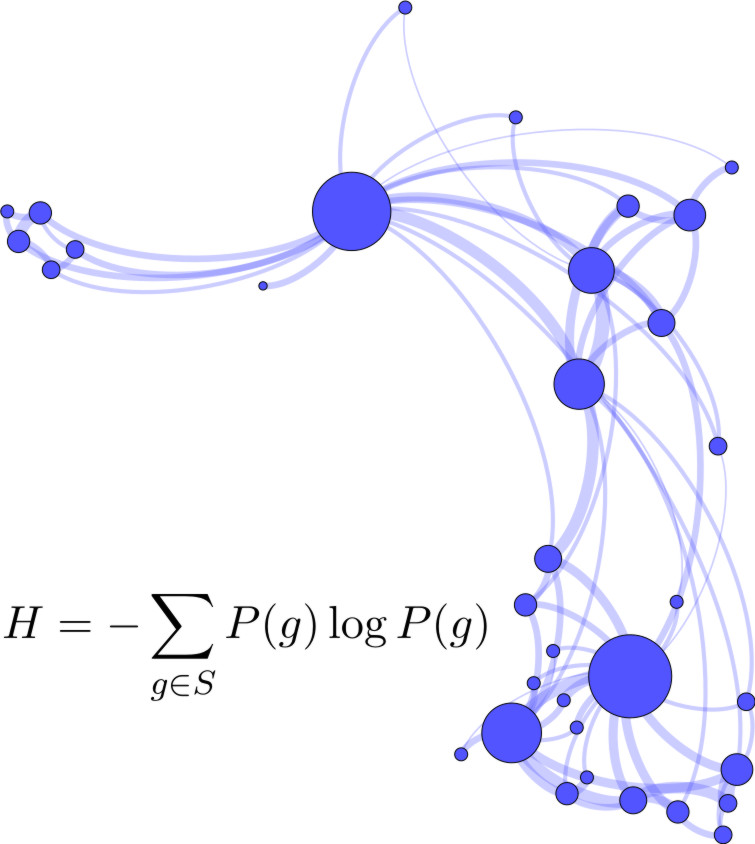Abstract
We quantify a social organization's potentiality, that is its ability to attain different configurations. The organization is represented as a network in which nodes correspond to individuals and (multi-)edges to their multiple interactions. Attainable configurations are treated as realizations from a network ensemble. To encode interaction preferences between individuals, we choose the generalized hypergeometric ensemble of random graphs, which is described by a closed-form probability distribution. From this distribution we calculate Shannon entropy as a measure of potentiality. This allows us to compare different organizations as well different stages in the development of a given organization. The feasibility of the approach is demonstrated using data from 3 empirical and 2 synthetic systems.
